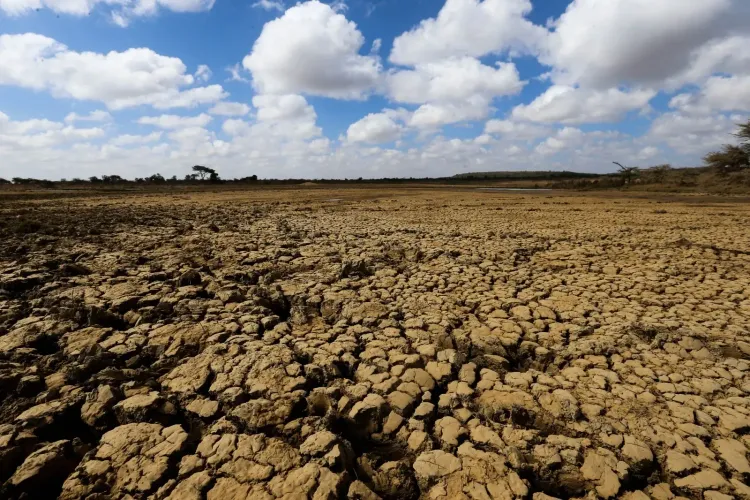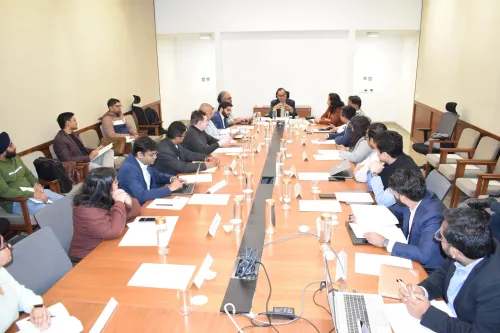NITI Aayog Collaborates with Gram Panchayats to Enhance Climate Resilience at Community Level

Synopsis
Key Takeaways
- Need for detailed Gram Panchayat-level data for informed planning.
- Integration of community knowledge with climate modelling.
- Institutionalization of climate resilience within PRIs.
- Encouragement of climate-smart approaches in development plans.
- Importance of multi-stakeholder collaboration for rural livelihoods.
New Delhi, April 4 (NationPress) NITI Aayog gathered a national workshop on Friday with Gram Panchayats aimed at facilitating the incorporation of climate adaptation tools into local development strategies.
This initiative emerges in response to the increasing occurrence of extreme weather phenomena and their repercussions on rural livelihoods, agriculture, and water security. Such events highlight the necessity for detailed Gram Panchayat-level data to ensure precise planning and informed decision-making.
The workshop titled ‘Mainstreaming Climate Adaptation into Local Development Planning’ brought together policymakers, climate experts, civil society organizations, and development practitioners to discuss effective methods for embedding climate resilience into Panchayat development agendas.
The emphasis was placed on equipping Gram Panchayats with the tools, knowledge, and resources required to tackle climate challenges effectively.
“Integrating climate adaptation into all facets of sectoral planning at the Panchayat level is vital, rather than treating it as a separate initiative,” stated NITI Aayog.
Furthermore, it was emphasized that climate modelling should be integrated with community-level knowledge to create locally relevant adaptation strategies.
A key focus was on institutionalizing climate resilience within Panchayati Raj Institutions (PRIs) and embedding climate-responsive planning into local development frameworks.
“The aim is to motivate Panchayats to incorporate climate-smart methodologies into their development planning by enhancing their capacity,” added NITI Aayog.
By showcasing successful practices from various states and Panchayats, the discussions highlighted the importance of peer learning and knowledge exchange in amplifying climate action. The transition from climate adaptation to proactive local climate action was a significant takeaway, underscoring the role of Panchayats in climate risk-informed development and disaster readiness.
The workshop called for collaboration among multiple stakeholders to promote climate-resilient rural livelihoods.
“Enhancing institutional capacity and fostering innovation in Panchayat-led climate initiatives were recognized as essential enablers. Integrating climate adaptation into local governance can enable India to develop a more sustainable and resilient rural development model,” concluded NITI Aayog.










